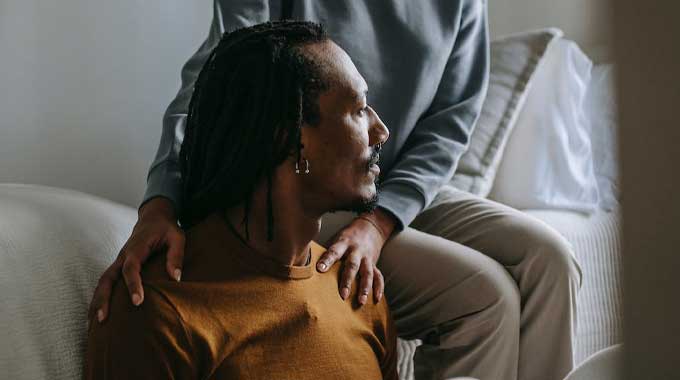Why Choose Honesty?
Being honest is one of the most beloved and respected traits a person can have. We admire and trust in people who show the courage to be true to themselves and authentic in their relationships each and every day. Not only this, but honesty is a key facet in recovery that helps you reforge your social connections and defends against relapse in a variety of different ways.
Dishonesty is a Relapse Trigger
Unfortunately, even in recovery, the muscle memory of our old harmful coping strategies is still there. For many of us, dishonesty was an ineffective coping strategy tied to our addiction.
The drive to be dishonest is often born out of a fear of consequences. When something goes wrong and we want to deflect the blame from ourselves, we lie – but this does nothing about our own feelings of guilt. At this point, the coping strategy has failed and we’re feeling even worse than before – this is one of the thought cycles that puts you at risk of giving in and relapsing.
Honesty and Healing Relationships
When we’re in the grip of addiction, we can devastate our family and friends’ trust in us through dishonest acts like lying, stealing, and cheating. We might say things we don’t mean, break promises, hide the truth by omission – and your loved ones will understand this to mean that you valued an addiction over them.
Honesty is the best policy when rebuilding relationships in recovery. The best connections are built on foundations of mutual trust and open honesty and you can rebuild your relationships this way. Know that it will take time and consistency. If friends and family notice that you have started to lie or withhold the truth – and chances are they will – it can ruin all your progress with healing your relationships.
Read more: Rehab Southern California
Denial and Healing Don’t Mix
A pattern of dishonesty will, worst of all, lead you to become dishonest with yourself about the challenges you face in sobriety. Obstacles are natural and can be overcome, but if you lock yourself in denial about what you’re experiencing, the risk of relapse becomes real.
Self-deception is what keeps us stuck in our addiction for so long before seeking help. Lying to ourselves about what drugs or alcohol were really doing to our lives underlines the addiction mindset – and it can come back even in recovery. Glamorizing past addiction and glossing over the painful details are steps towards relapse.
If you’re familiar with the kinds of therapies that are considered most effective in addiction recovery, you should have noticed an honesty theme. 12-step programs, behavioral therapy, and support groups all need you to be as honest with yourself and your counselors as possible to get any benefits.
How To Start Developing Your Honesty
1. Understand This
It is not necessarily going to be easy to remain honest with yourself and others. This is a difficult skill, especially when you’re accustomed to living in lies, and building this habit won’t start out as intuitively as you hope. Before you get started you need to understand the tangible, spiritual, and emotional improvements that honesty can bring you as well as the ways dishonesty works against you. Keep this in mind, and it will be much easier to remain focused.
2. Admit Guilt
When you lie, whether directly or by omission, you need to admit it to yourself, and then let the person you are affecting know as soon as possible. Show loved ones that you’re making efforts to be truthful and uphold their trust. With time, this practice becomes natural and makes it more difficult to be dishonest in the future.
3. Track Your Behavior
At the end of the day, reflect on any honest or dishonest moments that you experienced or brought about. Pay particular attention to what your emotional state was during and after these events transpired. Journalling gives you an opportunity to untangle these thoughts and feelings and gives you something tangible to look back on. Honesty is a big part of your recovery journey, and these changes deserve reflection.
4. All Lies Are Lies
Yes, perfect honesty is probably not achievable, and there are occasions when little white lies are socially appropriate. However, it is too easy to use this kind of thinking to negotiate your way out of the work you need to do to truly develop your truthfulness and trustworthiness. Even white lies exercise the part of your mind that builds into addictive thinking, so whenever possible – aim for absolute honesty.
5. Keep Going
Developing honesty is like any other form of learning. You’re going to need to keep trying regardless of the obstacles you’re facing or whether or not you have slipped up. The more you do it, the easier it becomes.






